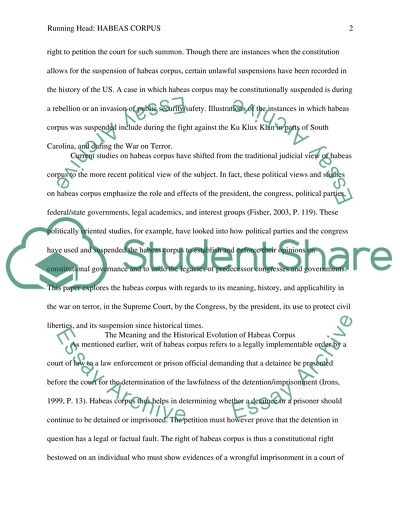Cite this document
(“Civil Liberties, Habeas Corpus, and the War on Terror Essay”, n.d.)
Civil Liberties, Habeas Corpus, and the War on Terror Essay. Retrieved from https://studentshare.org/history/1453945-civil-liberties-habeas-corpus-and-the-war-on
Civil Liberties, Habeas Corpus, and the War on Terror Essay. Retrieved from https://studentshare.org/history/1453945-civil-liberties-habeas-corpus-and-the-war-on
(Civil Liberties, Habeas Corpus, and the War on Terror Essay)
Civil Liberties, Habeas Corpus, and the War on Terror Essay. https://studentshare.org/history/1453945-civil-liberties-habeas-corpus-and-the-war-on.
Civil Liberties, Habeas Corpus, and the War on Terror Essay. https://studentshare.org/history/1453945-civil-liberties-habeas-corpus-and-the-war-on.
“Civil Liberties, Habeas Corpus, and the War on Terror Essay”, n.d. https://studentshare.org/history/1453945-civil-liberties-habeas-corpus-and-the-war-on.


